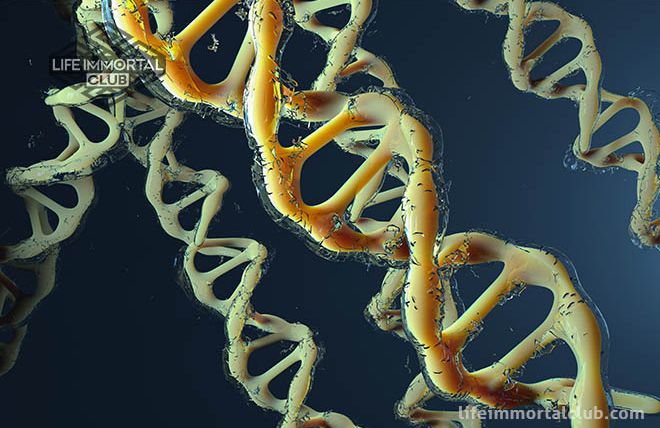Can Drinking Coffee Help Extend Your Life?

Some Useful Information About Life Extension Coffee.
Ahhhh, coffee – the elixir of life for many, and birth of the idea of "I can't adult without caffeine" club! This tasty brew has managed to carve out a special spot in our hearts and morning routines, hasn't it?
You stumble out of bed, bleary-eyed, and the first thing on your mind is that heavenly aroma wafting through your home – the siren call of freshly brewed coffee. It's like your caffeinated alarm clock, gently coaxing you into the day ahead. It has that comforting scent that is a universal symbol of hope and productivity. It's the promise of a better day, one sip at a time.
This isn't just a tale of caffeine buzz and delightful flavors. Oh no, coffee has a secret. It's been winking at researchers, raising an eyebrow and saying, "Hey, what if I'm not just here for your taste buds and your wake-up call? What if I'm here to help you live longer?" Your morning coffee is busy serving up a special mystery! Get ready to find out about some awesome perks that take you beyond the caffeine kick!
Brief Overview of the Popularity and Consumption of Coffee Worldwide
Coffee, a truly global favorite, has woven itself into the fabric of countless cultures worldwide. Its journey began in Ethiopia, East Africa, where it was first cultivated way back in the 9th century. From there, it embarked on a caffeinated odyssey, making its way through Arabia and eventually finding its aromatic path to Europe in the 17th century.
Since those early days, coffee has grown into a behemoth of popularity. Today, it's not just a drink; it's practically a way of life. You can find coffee lovers in every corner of the world, united by their devotion to that rich, enticing brew.
In fact, let's talk numbers for a moment. According to data from the International Coffee Organization (ICO), global coffee consumption hit an astounding 167 million bags during the 2019/2020 crop year. To put that into perspective, each of those bags tips the scales at around 60 kilograms. It's a staggering figure that underscores just how deeply coffee has permeated our daily existence. It's not just a beverage; it's a global phenomenon, a warm cup of camaraderie connecting people from all walks of life.
Intriguing Question: Can Drinking Coffee Actually Help Extend Your Life?
In the midst of its global ubiquity, an intriguing thought begins to percolate: could our cherished morning elixir have hidden talents beyond delivering sheer enjoyment? It's this very notion that has stirred the curiosity of researchers, igniting a quest to uncover any potential health benefits that might lurk within our coffee cups.
Over the years, a multitude of studies have emerged, delving into various facets of coffee's impact on human well-being. From its potential influence on chronic illnesses to its role in potentially extending our time on this planet, these inquiries seek to shine a light on whether our daily rendezvous with the brew might not just be a wake-up call for our energy levels but also a potential longevity potion.
Thesis Statement: Exploring Potential Health Benefits and the Association Between Coffee Consumption and Longevity
With the curiosity surrounding coffee's impact on lifespan, this article sets out to delve into the potential health benefits of coffee consumption and its association with longevity. By examining scientific research, unraveling the mechanisms behind these effects, and scrutinizing observational studies, we aim to provide a comprehensive analysis of whether drinking coffee can indeed contribute to extending one's life. Throughout this article, we will explore various aspects related to coffee consumption, including its historical significance, nutritional composition, potential mechanisms behind its health benefits, and any observed links between coffee intake and extended lifespan.
By unveiling the scientific evidence behind these claims, we hope to equip you with a deeper understanding of whether your daily cup of coffee may play a role in promoting a longer and healthier life. Stay tuned for an exploration that combines both science and sips!
Historical Perspective on Coffee Consumption
Origins of coffee and its journey from Ethiopia to global popularity
Coffee, with its rich aroma and energizing effects, has a fascinating history that dates back centuries. The story begins in Ethiopia, where legend has it that a goat herder named Kaldi discovered the stimulating properties of coffee beans.
According to the tale, Kaldi noticed his goats becoming more energetic after consuming berries from a certain tree. Intrigued by this observation, he decided to try the red cherries himself, experiencing heightened alertness and vitality.
This discovery led to the cultivation of coffee plants in Ethiopia's highlands. From its birthplace in Ethiopia, coffee made its way across continents through trade routes and cultural exchanges.
By the 15th century, Arabic traders had introduced coffee to the Middle East where it gained popularity as a beverage with invigorating qualities. Coffeehouses began to emerge as social hubs in cities like Constantinople (now Istanbul), attracting intellectuals, poets, and philosophers who engaged in lively discussions over cups of this newfound elixir.
During the 17th century, European travelers and merchants encountered coffee during their expeditions to the East. The first European coffeehouse opened its doors in Venice in 1645 and quickly spread across the continent.
These establishments became renowned gathering places where individuals could engage in intellectual discourse while savoring this enticing beverage. As coffeehouses proliferated throughout Europe during the Enlightenment period, they played a significant role in fostering scientific discussions and shaping intellectual movements.
Coffeehouses as centers of intellectual and social exchange throughout history
Across different epochs and cultures around the world, coffeehouses have consistently served as vibrant centers for intellectual exchange. In Ottoman Istanbul's bustling cafés or Vienna's famous Kaffeehäusern during Mozart's time, artists mingled with writers while sipping their aromatic cups of coffee.
The stimulating effects of caffeine were believed to inspire creativity and enhance cognitive function, making coffeehouses a hub for artists, writers, and thinkers seeking inspiration. In 17th-century London, coffeehouses became known as "penny universities" due to their affordability and the wealth of knowledge one could gain by spending just a small amount.
These establishments facilitated conversations on topics ranging from politics and literature to science and philosophy. The famous scientist Sir Isaac Newton frequented such coffeehouses, engaging in animated debates with fellow intellectuals that shaped his groundbreaking ideas.
Coffeehouses' role in shaping history extends beyond Europe. In the 18th century, the French Enlightenment found its birthplace in Parisian cafés where influential philosophers like Voltaire and Rousseau gathered.
These intellectual hotspots fostered discussions that challenged traditional thinking, paving the way for social and political transformations. Throughout history, coffeehouses have provided not only an energizing brew but also a nurturing environment for free expression and exchange of ideas.
As these establishments flourished across continents, they became instrumental in shaping cultural movements while fueling intellectual curiosity. Today's modern coffee shops continue this legacy by providing spaces where individuals can engage in deep conversations or find solace while sipping a cup of freshly brewed coffee - connecting us to our rich historical roots as we ponder life's intricacies over this beloved beverage.
Coffee's Nutritional Composition
Detailed breakdown of coffee's nutritional components
When examining the nutritional composition of coffee, it becomes evident that this popular beverage is more than just a morning pick-me-up. Coffee contains a variety of essential elements, including caffeine, antioxidants, minerals, and vitamins.
Let us explore each component in detail. First and foremost, caffeine is one of the most well-known compounds found in coffee.
It acts as a stimulant on the central nervous system, providing increased alertness and reducing fatigue. The average cup of coffee contains approximately 95 milligrams of caffeine, which can vary depending on factors such as brewing method and bean type.
In addition to caffeine, coffee boasts a remarkable concentration of antioxidants. These compounds include chlorogenic acids, quinines, polyphenols, and melanoidins.
Antioxidants play a crucial role in neutralizing harmful free radicals within our bodies. By combating oxidative stress and reducing inflammation at the cellular level, these antioxidants contribute to overall health and potentially mitigate the risk of various chronic diseases.
Furthermore, coffee provides essential minerals such as potassium, magnesium, and manganese. Potassium aids in maintaining proper heart function and blood pressure regulation while supporting muscle contractions.
Magnesium is crucial for energy production within cells and supports bone health alongside calcium. Manganese contributes to enzymatic reactions involved in metabolism regulation.
Explanation of how these components contribute to potential health benefits
Coffee's impressive repertoire of nutritional components isn't just for show; it plays a significant role in its potential health perks. First up on the stage is caffeine, the coffee superstar known for its ability to give our brains a wake-up call. It's like the conductor of a caffeine-fueled orchestra, enhancing focus and mental alertness, temporarily turning us into productivity powerhouses.
But caffeine isn't the only player in this coffee symphony. Antioxidants, those unsung heroes, are also abundant in coffee. They're like the body's personal superheroes, battling the oxidative stress caused by pesky free radicals that can wreak havoc on our cellular structures and DNA. By neutralizing these troublemakers, antioxidants help lower the risk of chronic diseases.
And speaking of chronic diseases, studies have suggested that regular coffee sippers may be in for a healthier ride. The research points to a decreased likelihood of developing conditions like type 2 diabetes, certain cancers, and heart diseases for those who make coffee a part of their daily routine.
But wait, there's more! Coffee isn't just a one-trick pony. It's also packing some essential minerals and vitamins. For instance, potassium steps in to keep our ticker in tip-top shape, while magnesium does its magic, helping our cells produce energy. It's like a well-balanced team supporting our cardiovascular health and metabolic processes.
And let's not forget about the B vitamins, like niacin and riboflavin, cozying up in our coffee cup. These essential nutrients quietly assist in keeping our bodily functions in check. In short, coffee's nutritional makeup is like a finely crafted Swiss watch, intricate and full of beneficial surprises.
The Link Between Coffee Consumption and Longevity
Overview of scientific studies suggesting a positive association between coffee intake and extended lifespan
Numerous scientific studies have investigated the potential relationship between coffee consumption and longevity - life extension. revealing promising findings that support a positive association. One such study published in the renowned journal New England Journal of Medicine examined the coffee-drinking habits of over 400,000 participants over a span of several years. The study found that individuals who regularly consumed coffee had a lower risk of death from various causes compared to non-coffee drinkers.
These findings were consistent even after accounting for factors such as age, smoking habits, and body mass index. Furthermore, another notable investigation conducted at Harvard University analyzed data from multiple studies involving millions of participants from diverse populations worldwide.
The results demonstrated that there was a significant reduction in mortality rates among regular coffee consumers across various ethnicities and geographical regions. These findings suggest that the potential health benefits associated with coffee intake may extend beyond specific populations or cultural backgrounds.
Meta-analyses showing reduced risk of mortality in regular coffee drinkers
Meta-analyses, which systematically evaluate multiple studies on a particular topic, have provided further evidence supporting the favorable link between coffee consumption and extended lifespan. A comprehensive meta-analysis published in The American Journal of Clinical Nutrition pooled data from twenty different studies involving nearly one million participants.
The analysis revealed that individuals who consumed higher amounts of coffee had a significantly lower risk of all-cause mortality compared to those with little or no coffee consumption. Moreover, this meta-analysis also examined cause-specific mortality rates among regular coffee drinkers.
The results indicated that increased consumption was associated with reduced risks for several chronic diseases, including cardiovascular disease, type 2 diabetes mellitus, Parkinson's disease, liver cirrhosis, and certain types of cancer. These findings provide compelling evidence for the potential protective effects of coffee against various age-related diseases, thereby contributing to an overall increased lifespan.
Studies highlighting lower incidence rates for various chronic diseases among coffee consumers
In addition to the reduced mortality risk, numerous studies have demonstrated a notable association between coffee consumption and lower incidence rates of specific chronic diseases. For instance, research published in The Journal of the American Medical Association revealed that moderate coffee intake was inversely associated with the development of type 2 diabetes mellitus.
The study found that individuals who consumed four or more cups of coffee per day had a significantly lower risk of developing diabetes compared to non-coffee drinkers. Furthermore, investigations focusing on liver health have consistently shown that regular coffee consumption is associated with a decreased risk of liver cirrhosis and hepatocellular carcinoma, the most common form of liver cancer.
Several mechanisms have been proposed to explain this relationship, including the beneficial effects of coffee's antioxidants and its ability to modulate hepatic enzymes involved in detoxification. These studies collectively suggest that drinking moderate amounts of coffee can potentially confer protection against various chronic diseases and contribute to an extended lifespan.
However, it is important to note that individual responses may vary due to genetic factors and other lifestyle considerations. As always, moderation is key when incorporating any dietary component into one's daily routine.
Mechanisms Behind Coffee's Potential Health Benefits
An Exploration of the Physiological Effects of Caffeine on the Body
Coffee, one of the world's most popular beverages, owes much of its stimulating properties to caffeine. As a natural stimulant, caffeine acts as an adenosine receptor antagonist, blocking the inhibitory effects of adenosine in the brain and promoting wakefulness.
When we consume coffee, caffeine quickly enters our bloodstream and crosses the blood-brain barrier. Once in the brain, it binds to adenosine receptors, preventing adenosine from exerting its sedative effects.
Increased Alertness, Cognitive Function, and Mood Enhancement
One of the most well-known effects of caffeine is its ability to enhance alertness and combat fatigue. By blocking adenosine receptors in the brain, caffeine increases neural activity and neurotransmitter release—particularly dopamine and norepinephrine—which play key roles in regulating mood and attention.
This surge in neurotransmitters leads to increased alertness and improved cognitive function. Furthermore, several studies have shown a positive association between coffee consumption and enhanced cognitive performance.
Caffeine’s ability to stimulate brain activity not only improves focus but also enhances memory consolidation—a process crucial for learning new information efficiently. In addition to boosting alertness and cognitive function, coffee can elevate mood levels due to its impact on neurotransmitters like serotonin.
Serotonin is often referred to as the "feel-good" hormone because it helps regulate emotions. By modulating serotonin levels in the brain, coffee consumption has been linked with improvements in mood.
Potential Reduction in the Risk of Neurodegenerative Diseases such as Alzheimer's and Parkinson's
Recent research suggests that regular coffee consumption may offer protection against neurodegenerative diseases such as Alzheimer's and Parkinson's. Both conditions are characterized by progressive damage to the nervous system and cognitive decline. However, the exact mechanisms through which coffee exerts its protective effects are still under investigation.
One hypothesis revolves around coffee's high concentration of bioactive compounds, particularly polyphenols and antioxidants. These compounds possess neuroprotective properties, reducing inflammation and oxidative stress—two factors implicated in the development of neurodegenerative diseases.
Moreover, caffeine itself has been found to prevent the accumulation of abnormal protein deposits in the brain, such as amyloid-beta plaques in Alzheimer's disease and alpha-synuclein aggregates in Parkinson's disease. While further research is needed to establish a definitive causal relationship between coffee consumption and reduced risk of neurodegenerative diseases, current evidence indicates that regular moderate coffee intake might be a simple yet effective way to promote brain health and potentially lower the risk of developing these debilitating conditions.
Antioxidants in Coffee
Overview of key antioxidants found in coffee (e.g., chlorogenic acid)
Coffee is rich in a variety of antioxidants, with one prominent compound being chlorogenic acid. Chlorogenic acid is a naturally occurring polyphenol that contributes to the unique flavor and aroma of coffee.
Its presence in coffee beans is significantly higher compared to other commonly consumed beverages, such as tea or cocoa. Chlorogenic acid acts as a potent antioxidant, protecting the body against harmful free radicals.
Studies have shown that this antioxidant can scavenge free radicals and reduce oxidative stress, which plays a crucial role in various diseases and aging processes. Apart from chlorogenic acid, coffee also contains other antioxidants such as caffeic acid, quinic acid, and melanoidins.
These compounds possess strong antioxidant properties and contribute to the overall beneficial effects of coffee consumption on health. The combination of these antioxidants makes coffee an effective source of protection against oxidative stress-induced damage.
Explanation on how these antioxidants combat oxidative stress and inflammation within the body
Oxidative stress occurs when there is an imbalance between free radicals (unstable molecules) and the body's ability to neutralize them with antioxidants. This imbalance can lead to chronic inflammation, DNA damage, accelerated aging processes, and increased risk of various diseases such as cardiovascular diseases, cancer, and neurodegenerative disorders.
The antioxidants present in coffee help combat oxidative stress by neutralizing free radicals before they cause harm to cells. Specifically, chlorogenic acid has been found to inhibit the production of reactive oxygen species (ROS) within the body.
By reducing ROS levels, it prevents cellular damage caused by oxidation processes. Moreover, these coffee antioxidants also possess anti-inflammatory properties.
They work by inhibiting pro-inflammatory molecules involved in inflammatory pathways within the body. These anti-inflammatory effects can further contribute to minimizing chronic inflammation, which is a key driver of many chronic diseases.
Discussion on their potential role in reducing the risk of cardiovascular diseases
Multiple studies have suggested that the antioxidants found in coffee, particularly chlorogenic acid, may contribute to reducing the risk of cardiovascular diseases. Oxidative stress and inflammation play critical roles in the development and progression of cardiovascular disorders such as heart disease and stroke.
Chlorogenic acid, with its antioxidant and anti-inflammatory properties, can contribute to maintaining cardiovascular health. Research has shown that it may help lower blood pressure levels by relaxing blood vessels, thereby improving overall vascular function.
Additionally, it may assist in reducing LDL cholesterol oxidation, a process involved in atherosclerosis development. Furthermore, regular moderate consumption of coffee has been associated with a decreased risk of heart failure and stroke.
However, it is important to note that excessive intake or added high-calorie ingredients may negate these potential benefits. As always, moderation remains key when enjoying coffee as part of a healthy lifestyle to reap its potential protective effects on cardiovascular health.
Other Health Benefits Associated with Coffee Consumption
Examination on how regular coffee intake may lower the risk for certain diseases
Aside from its potential role in extending lifespan, regular coffee consumption has been associated with various other health benefits. Extensive research suggests that coffee drinkers may have a reduced risk of several diseases, including type 2 diabetes, liver disease, certain cancers, and even depression. Let's delve into these associations to gain a comprehensive understanding of the potential positive effects of coffee on overall health.
Studies have consistently shown an inverse relationship between coffee consumption and the development of type 2 diabetes. The active compounds found in coffee, such as chlorogenic acid and trigonelline, have been found to enhance insulin sensitivity and regulate glucose metabolism.
Additionally, caffeine itself has demonstrated the ability to stimulate the release of adiponectin—a hormone involved in regulating blood sugar levels—and reduce inflammation in fat tissues. These mechanisms collectively contribute to a decreased risk of developing type 2 diabetes among regular coffee consumers.
Furthermore, emerging research indicates that moderate coffee intake could protect against liver diseases such as cirrhosis and hepatocellular carcinoma (HCC). The hepatoprotective properties of coffee can be attributed to its antioxidant content and anti-inflammatory effects.
For instance, studies have shown that higher daily consumption of coffee is associated with a lower risk of developing cirrhosis caused by excessive alcohol consumption or non-alcoholic fatty liver disease (NAFLD). Moreover, evidence suggests that drinking at least three cups of coffee per day can lead to a significant reduction in the incidence of HCC—an aggressive form of liver cancer.
Conclusion
Beyond its possible role in extending our time on this beautiful blue planet, the joy of sipping on a cup (or two, or three) of Joe each day might be doing wonders for your well-being. Coffee enthusiasts can rejoice in the fact that their beloved brew has been linked to a decreased risk of various health woes, like the sneaky type 2 diabetes, liver issues such as cirrhosis and hepatocellular carcinoma, certain cancers, and even the occasional blues known as depression.
But, here's the gentle reminder: moderation is the name of the game. While coffee can be your trusty companion, going overboard might lead to sleepless nights and a jittery, heart-pounding experience for some of us. So, it's a fine line to tread.
Nevertheless, for the majority of coffee aficionados, that well-brewed cup is more than just a beverage. It's a delightful experience that comes with a side of potential health perks. So, take a moment to savor the flavor of your favorite blend; it might just be adding more than a burst of caffeine to your life – it could be contributing to your overall well-being. Cheers to that!
Looking for a new exciting coffee to try?







